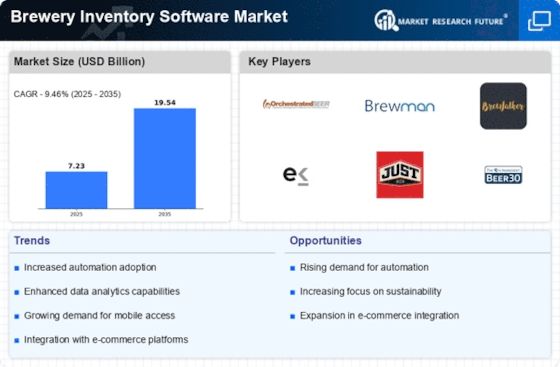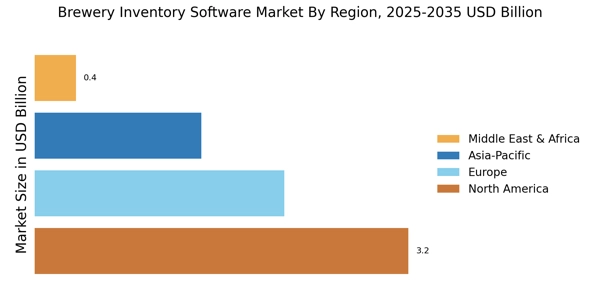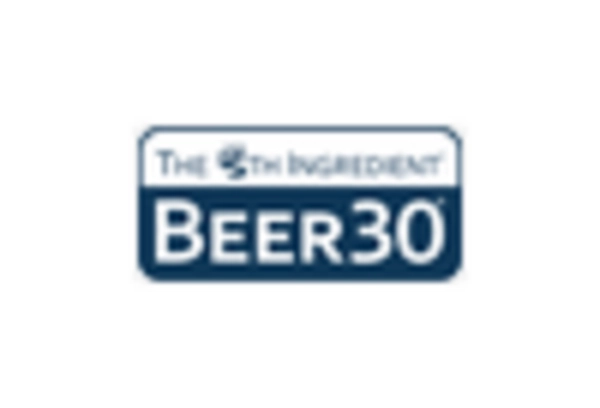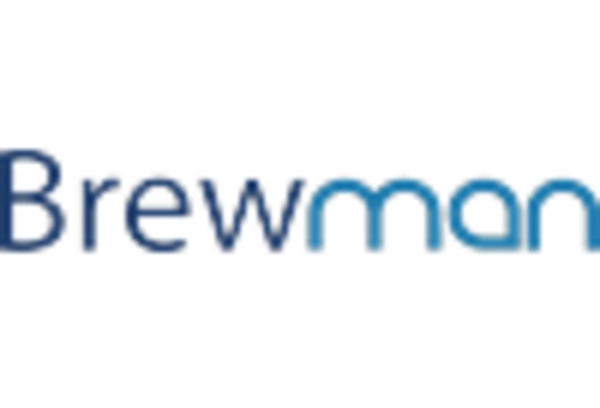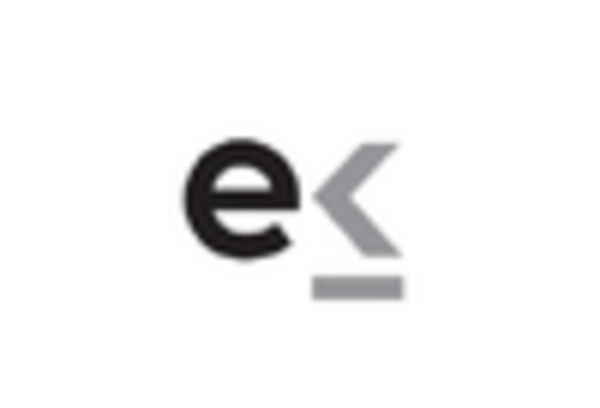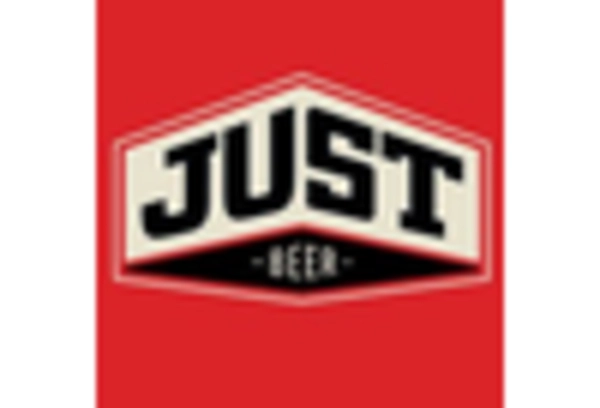Rising Demand for Craft Beers
The Brewery Inventory Software Market is experiencing a notable surge in demand for craft beers, driven by changing consumer preferences. As more individuals seek unique and locally produced beverages, breweries are compelled to enhance their inventory management systems. This shift necessitates sophisticated software solutions that can efficiently track ingredients, manage production schedules, and ensure quality control. According to industry reports, the craft beer segment has seen a growth rate of approximately 20% annually, indicating a robust market for inventory software tailored to these smaller, agile producers. Consequently, the Brewery Inventory Software Market is likely to expand as breweries invest in technology to meet consumer expectations and streamline operations.
Increased Focus on Sustainability
The Brewery Inventory Software Market is witnessing a growing emphasis on sustainability practices among breweries. As consumers become more environmentally conscious, breweries are seeking ways to reduce waste and improve resource management. Inventory software that supports sustainable practices, such as tracking ingredient sourcing and minimizing excess production, is gaining traction. This trend is likely to drive demand for software solutions that align with sustainability goals. The market is projected to see a rise in offerings that incorporate features aimed at reducing the environmental impact of brewing operations. Thus, the Brewery Inventory Software Market may experience growth as breweries prioritize eco-friendly practices.
Regulatory Compliance Requirements
The Brewery Inventory Software Market is significantly influenced by the increasing regulatory compliance requirements imposed on breweries. Governments are implementing stringent regulations regarding labeling, safety, and traceability of alcoholic beverages. As a result, breweries must adopt comprehensive inventory management solutions that facilitate compliance with these regulations. Software that can automate reporting and maintain accurate records is becoming essential. The market for such solutions is projected to grow, as breweries recognize the importance of avoiding penalties and ensuring product safety. This trend suggests that the Brewery Inventory Software Market will continue to evolve, with a focus on compliance-driven features and functionalities.
Integration of E-commerce Platforms
The Brewery Inventory Software Market is increasingly influenced by the integration of e-commerce platforms into brewery operations. As online sales of alcoholic beverages rise, breweries are compelled to adopt inventory management solutions that seamlessly connect with e-commerce systems. This integration allows for real-time inventory tracking and order fulfillment, enhancing customer satisfaction. The e-commerce segment of the beverage industry is expected to grow significantly, with projections indicating a 25% increase in online sales over the next few years. Consequently, the Brewery Inventory Software Market is likely to expand as breweries seek to optimize their inventory management in alignment with e-commerce trends.
Technological Advancements in Software Solutions
The Brewery Inventory Software Market is benefiting from rapid technological advancements that enhance software capabilities. Innovations such as artificial intelligence and machine learning are being integrated into inventory management systems, allowing breweries to optimize their operations. These technologies enable predictive analytics, which can forecast demand and streamline supply chain processes. As breweries increasingly adopt these advanced solutions, the market for inventory software is expected to expand. Reports indicate that the adoption of AI-driven software in the beverage industry could lead to a 30% reduction in operational costs, underscoring the potential for growth within the Brewery Inventory Software Market.


